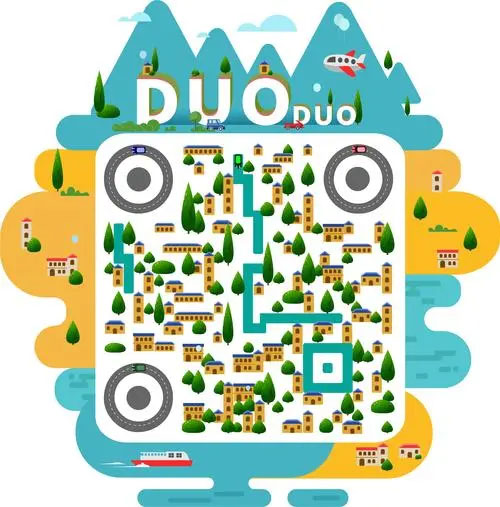清华大学2000年5月考博英语真题(04)
作者:本站 阅读:0次 上传时间:2022-07-09 14:33:34
Part III Reading Comprehension (50%)
Section A
Directions: There are 3 reading passages in this part. Each passage is followed by some questions or unfinished statements. For each of them there are four choices marked A, B, C and D. You loeide on the best choice.
Passage I
In the years following the Second World War, the youth hostel idea spread to other parts of the world and the same spirit was maintained. The International Youth Hostel Federation, IYHF, which was to co-ordinate activities in the various national associations, incorporated in its constitution the principle that in youth hostels "there shall be no distinctions of race, nationality color, religion, class or political opinions. This, it should be noted, was at a time when the principles of racial equality and brotherhood were by no means so widely acknowledged as they are now."
There is normally no age bar at youth hostels. Exceptions are Switzerland and Bavaria. Where there is a maximum age of 25 and I7 years respectively. Generally, however, the hostels are intended to meet the needs of two main groups: senior secondary school children, university and schoolchildren travelling with a teacher on educational visits, and aged between about 11 and I8.
The principal contribution of the youth hostel movement to the attack on racism is the fact that in the 4,364 hostels throughout the world the brotherhood of man is taken for granted and practiced quietly and without any ostentation.
If you walk into the common-room of a big youth hostel in Gracow or Munich, Lahore of Canberra, you will find young people of' every race and nationality sitting down together to share their experiences and discuss the world's problems. As a Malaysian boy recently remarked:" youth hostel is a place where you will never feel lost"
In accordance with its constitution, the IYHF has never admitted to membership youth hostel associations in South Africa and Rhodesia, because legislation in those countries makes it impossible for people of different races to share youth hostel facilities.
But an interesting new project is under way in Lesotho, with the financial and technical support of the Federation: the construction of a south hostel specifically designed to carry out an educational task in southern Africa by opening its doors to young people of all races from neighboring and more distant countries. Situated just outside the capital, Maseru, the youth hostel will also provide accommodation for young people of Lesotho attending study and training courses.
The very, comprehensive statistics maintained by the IYHF show tile movement of young people form country, to country in some detail, it can be seen, for instance, that 10,828 "overnights" were recorded in 1972 by young Americans in tile hostels of Japan. and 3.643 by young visitors form India in the youth hostels of West Germany. Although these figures are small in absolute terms, they represent a network of individual human contacts among young people which can influence outlooks and opinions at the grass roots.
Passage 2
Before about 3500 BC, there were cultures, but not civilizations. Prehistoric men and women created societies, constructed houses, lived in villages, hunted and fished, farmed, made pottery, wove cloth, and created languages. But unlike more advanced peoples, they did not build cities, read, or write. Cities are the cornerstone of civilized life because with them came other civilizing elements, including differentiation of classes and employment, sophisticated religious and political systems, monumental architecture, and the formation of states and empires.
Historians usually begin the story, of civilization with accounts of the world's first great writers and city-builders, the Sumerians. Because the Sumerians recorded ideas and sagas and listed the names of their rulers, we know more about them than about prehistoric about prehistoric peoples who left their legacy in stones, bones, and pottery.
With the ability to build cities and record thought came the ability to communicate ideas and innovations over vast reaches of time and space. Human beings―who had formerly taken hundreds of thousands of years to learn that a stone ax sharpened on both sides is more useful than an ax sharpened on one side―progressed rapidly from foot travel to horse drawn carts, and later, from railroads to airplanes. With these and thousands of other innovations, people came to live Longer, more comfortable lives.
Civilization also brought new ills to humanity. In the 20th century, it brought nuclear carfare global warming, and ozone depletion. More subtly, civilization removed human beings from regular encounters with the wonders of the natural world. Unlike people of modem civilizations primitive people lived close to the sounds and smells of forest and grasslands. They locked at fire and the stars with awe and reverence. Civilization involves the ability to create a new political and cultural world. In the 19th century, the American writer, philosopher, and naturalist Henry David Thoreau noted that this artificial sphere separates humanity from primitive virtue. "Most of the luxuries, he argued, "and many of the so-called comforts, of life are not only not indispensable, but positive hindrances to the elevations of mankind." Thoreau believed that men and women should simplify their lives.
Even those ancient pioneers of civilization, the Greeks, mourned the lost innocence. They expressed this sense of regret in the story, of Prometheus and Pandora. Contrary, to the wishes of other Gods, Prometheus brought to humanity the gifts of fire, art, and science. The jealous gods were unwilling to allow men and women to enjoy, such blessings without cost, and so they sent Pandora to the world with a box containing disease, sorrow, and other evils.
Thus, human beings have viewed civilization as a mixed blessing. Civilized people have waged brutal wars, destroyed majestic forests, and persecuted religious minorities. But civilizations have also achieved wonders.
46. Which of the following represents civilization of people?
A) They build houses. B) They have societies.
C) They live in a group. D) They can write.
47. "Sumerians" in the second paragraph refers to ______.
A) a person B) a group of people
C) human beings D) prehistoric people
48. In paragraph 4, there is a sentence given by Henry. Thoreau, "Most of the luxuries, and many of the so-called comforts, of life are not only not indispensable, but positive hindrances to the elevations of mankind." This sentence means ______.
A) Most luxuries and comforts are important and can improve the quality, of people's life.
B) Most luxuries rind comforts are not so important for they cannot improve the quality of people's life








 四川大学
四川大学  浙江大学
浙江大学  北京邮电大学
北京邮电大学  首都经济贸易大学
首都经济贸易大学  天津大学
天津大学 
 5月和10月的考试相对来说哪种比较简单些?我想报考教育硕士,现在该如何准备呢?
5月和10月的考试相对来说哪种比较简单些?我想报考教育硕士,现在该如何准备呢?